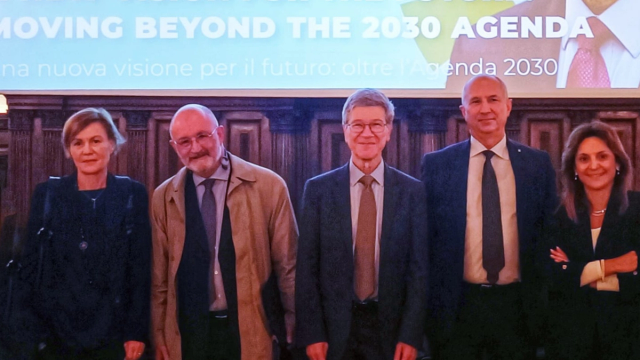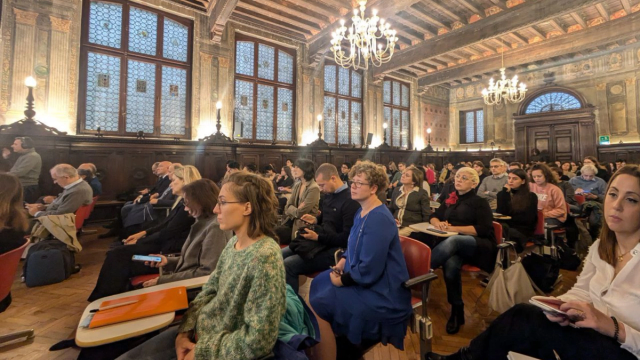SDSN Italia Hosts “A New Vision for the Future: Moving Beyond the 2030 Agenda”
New Host Institution of SDSN Italia
In September 2024, the University of Brescia and the Politecnico di Torino became the new host institutions for SDSN Italy. These universities will play a crucial role in advancing SDSN's mission to promote sustainable development solutions nationwide, fostering collaboration across academic, civil, and private sectors to address global challenges.
This partnership represents a major step in expanding the network’s influence and engagement throughout Italy. Prof. Michele Pezzagno, director of the University of Brescia’s Research and Documentation Center for the 2030 Sustainable Development Agenda (CRA2030), will serve as the new co-chair for the University of Brescia, while Prof. Patrizia Lombardi, Green Team Coordinator, Vice Rector for Sustainable Campus and Living Lab, and President of the Italian University Network for Sustainable Development, will be the co-chair for the Politecnico di Torino.
A New Vision for the Future: Moving Beyond the 2030 Agenda
On October 16, 2024, the University of Brescia and CRA2030 hosted the public seminar "A New Vision for the Future: Moving Beyond the 2030 Agenda" in Brescia, Italy. The event welcomed Prof. Jeffrey Sachs, President of the Sustainable Development Solutions Network (SDSN), as a keynote speaker. The seminar presented the key elements of the Pact for the Future, attracting nearly 200 participants, including academics, students, and citizens.
The event opened with remarks from Prof. Francesco Castelli, Rector of the University of Brescia and UNESCO Chair for Training and Empowering Human Resources for Health Development in Resource-Limited Countries, and Prof. Michele Pezzagno, co-chair of SDSN Italy. Following the introductions, Prof. Jeffrey Sachs and Prof. Phoebe Koundouri took part in a session moderated by Prof. Maurizio Tira, former Rector of the University of Brescia.
During the seminar, Prof. Sachs provided an initial analysis of the Pact for the Future, which was endorsed by world leaders at the United Nations in late September. Prof. Koundouri followed with a discussion on the importance of global education in achieving sustainable development goals.
Five Pillars of the Pact for the Future:
- Strengthening international financial systems for sustainability.
- Promoting peace among nations.
- Advancing a human rights-respecting digital revolution.
- Prioritizing education for global development.
- Reforming United Nations institutions to meet contemporary challenges.
Key Conference Takeaways:
- Vision for the Future: The goals in the 2030 Agenda, Paris Agreement, and the Pact for the Future present an ideal vision for future generations. However, current global complexities pose significant challenges to realizing this vision.
- Misused Technological Resources: There are concerns about the diversion of technological resources toward military sectors, complicating efforts to address sustainability and climate challenges.
- Global Commitment Gaps: The United States remains one of five Nations that have yet to adopt a Sustainable Development Strategy, reflecting a lack of commitment to implementing the 2030 Agenda signed in 2015.
- Interdisciplinary Collaboration: Interdisciplinary approaches in education and partnerships between universities, businesses, public institutions, and civil society are crucial to creating systemic and practical solutions.
- Role of European Programs: European programs play a key role in fostering these collaborations, ensuring that scientific advancements are accessible and applicable in real-world scenarios.
At the end of the seminar, the guests engaged in a heartfelt debate, thanks to the numerous questions from the audience. Watch the conference here.
Please note that the introduction is in Italian and the presentations of Prof. Sachs and Prof. Koundouri is in English.

